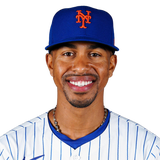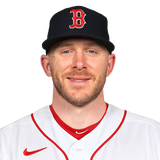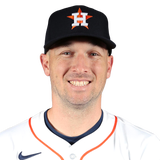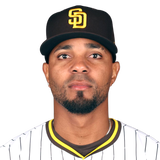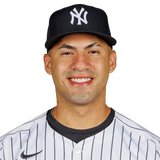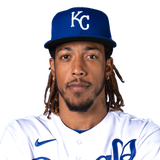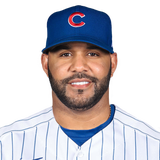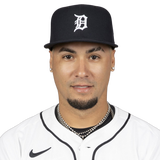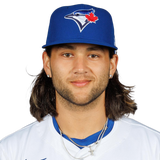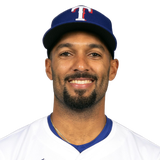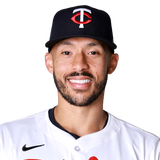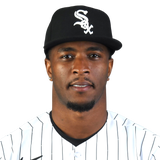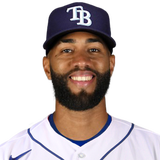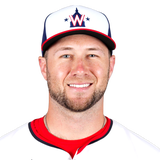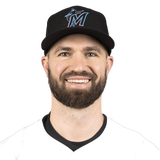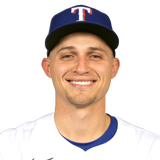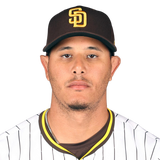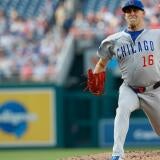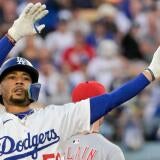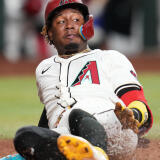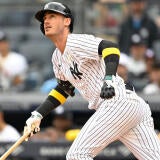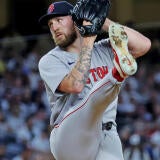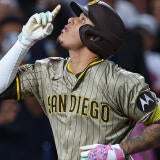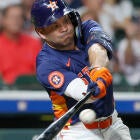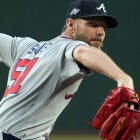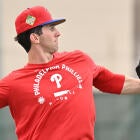2020 Fantasy Baseball Shortstop Preview: Sleepers, breakouts, busts, top prospects, rankings and more for 2020
Old school Fantasy managers can still remember scarcity at shortstop, but those days are long gone.
How absurdly stacked is the shortstop position these days? Fernando Tatis, who just hit .317 with 22 homers and 16 steals in 84 games as a 20-year-old is barely in the top five at the position in early ADP; Gleyber Torres and his 38 homers as a 22-year-old don't crack the top five. Manny Machado isn't even in the top 10 anymore.
Expect to see at least 10 players come off the board from shortstop inside the first 50 picks on Draft Day, which means there's a good chance one of your offensive centerpieces is going to come from shortstop. However, we're also at a point where you might draft someone like Torres, Alex Bregman or Machado, and use them at another position.
The days of shortstop being a shallow position are pretty much gone. In fact, there really isn't much difference between shortstop and first or third base, while it's clearly a much stronger position than second base. In 2020, "middle infield" isn't a useful term.
You could technically draft shortstops with your first three picks and end up with Bregman at third base, Trea Turner at shortstop, Torres at second base and have power, speed and average locked in to start your team. The position is really that strong, and there's plenty of depth. If you want to prioritize one position early in your draft, shortstop is where to do it.
Shortstop Preview
It feels like we've never gotten the truly dominant full season Turner is capable of, but last season could have been it if he had stayed healthy — he was on pace for 25 homers, 45 steals and 200 combined runs and RBI with his best average since 2016. The hopes of a 60-plus steal season are probably gone, but he could still lead the majors in that category without the risk of hurting you elsewhere.
| ||||||||||||
Lindor got a late start due to a calf injury, but he didn't let it slow him down as he put together his second straight 30-homer, 20-steal season. Lindor is the kind of player who isn't necessarily elite in any one category, but there are few players who help you in as many ways as he does.
| ||||||||||||
Story basically perfectly replicated his 2018 breakout last season, hitting .290 for the second straight year with 30-plus homers and 20-plus steals. There's still some volatility in the swing-and-miss in his game — and it's fair to wonder how helpful he would be if the Rockies don't get to call Coors Field home for half their games — but the all-around skillset is real and they still call Coors home.
| ||||||||||||
You might actually have more use for Bregman at third base surprisingly, but either way, he's one of the elite players in Fantasy and a no-doubt first-rounder in any lineup spot. And hey, if Dusty Baker lets him run a bit more than he did last season, we wouldn't complain.
| ||||||||||||
The peripherals don't back up what Tatis did as a rookie, especially the batting average, but do you want to be the one who bets against one of the best prospects of the decade coming off a rookie season like that? Even if the average does regress more to the .270 range, there's enough power and speed here to put up a Trevor Story-esque season even without improvements in his contact rate.
| ||||||||||||
Playing in that Red Sox lineup is always going to help Bogaerts put up huge counting stats, and he has taken enough of a step forward over the past few years to emerge as a true four-category stud. Buyer beware, however: His career-best numbers in 2019 aren't quite backed up by his peripherals, which suggest a regression more to his 2018 production. Not that there's much wrong with that.
| ||||||||||||
Torres' 38 homers in just 144 games point to huge upside, but it's worth noting that 13 came against the Orioles. Eleven players since 1969 have hit at least 11 homers against the same team in a season, and they collectively saw their homers fall by almost 25% the next season – and none hit more the following year. Of course, he's also just 23, so there's plenty of room for him to overcome any possible regression by simply getting better.
| ||||||||||||
Injuries remain an issue for Mondesi, whose 113 games in 2019 represent his most since 2013. When he's on the field, Mondesi is a Roto stud, and the best bet to lead the majors in steals if he stays healthy. That's a significant "if."
| ||||||||||||
Villar is the safe version of Mondesi — though anyone who has followed Villar's career is probably cringing at the word "safe" there. Even if Villar does hit, that could just increase the chances the Marlins move him at the deadline, possibly to a team that won't need to play him every day. That's the risk.
| ||||||||||||
Baez's 2019 wasn't much different than his breakout 2018, but the cost to acquire him is lower now. Good. Take advantage of that. He's still a rare five-category contributor with a high floor and ceiling.
| ||||||||||||
We couldn't have asked Bichette to do more in his 46-game MLB debut in 2019. He hit for power and average, and showed some stolen base potential, too. He's not quite on Tatis' level as a prospect, but he's not far off as he grows into his power.
| ||||||||||||
Here's another player you're buying coming off a career year, with all the attendant risk that comes from that. Semien doesn't hit the ball especially hard, but he got the most out of his swing in 2019 by cutting his strikeout rate significantly and cutting out some of the weakly hit balls in his profile. Whether that is a repeatable recipe for success remains to be seen.
| ||||||||||||
Don't forget about ...
"If Correa stays healthy ..." Well, he never does, does he? When he's on the field, Correa is an elite Fantasy option, a legitimate four-category contributor who could challenge for a top-five spot at the position quite easily. If he just stays healthy ...
| ||||||||||||||||||||||
The best example of how stacked shortstop is might be the fact that last year's batting title winner who hit 18 homers and stole 17 bases isn't currently being drafted inside the top 100. He won't repeat last year's success on batted balls, but Anderson is a 20-20 guy who should do better than his career .276 average.
| ||||||||||||||||||||||
Rosario is starting to get some hype, as he has started to grow into his power. You'd like to see him be a more efficient base runner, and there is 25-steal potential if that happens.
| ||||||||||||||||||||||
Kieboom looked overwhelmed in his first taste of the majors in 2019, but he still hit .303/.409/.493 in Triple-A. He doesn't run much, so the bat will have to play up, but it sounds like he'll get every chance to earn an everyday job at third base.
| ||||||||||||||||||||||
Shortstop Sleeper, Breakout & Bust
This might be filed more under a "Deep Sleeper," but if you're looking for speed, Berti is worth considering. There are questions about how much he'll play even for the Marlins, but Isan Diaz, Lewis Brinson and Miguel Rojas could all very easily be ceding playing time. Berti's positional versatility got him in the lineup plenty late last season, and he stole 16 bases in just 46 games in the second half of the season. If he gets 500 plate appearances, Berti could swipe 30 bases, providing value in Roto leagues.
| ||||||||||||||||||||||
I'm usually not a fan of arbitrary endpoints, but in Seager's case, it may make some sense to excuse his subpar April. He was coming back from hip and elbow surgeries, and was hitting just .236 with an OPS below .700 in the first month. From that point on, he hit .282/.335/.517 with a 162-game pace of 28 homers, 58 doubles, 124 RBI and 102 runs. Seager has long looked a lot like Freddie Freeman in both production and peripherals, and it wasn't until is age-26 season Freeman officially broke out as an elite power bat. Guess how old Seager will be in 2020?
| ||||||||||||||||||||||
Granting that players generally hit worse on the road than at home, Machado's stats away from Camden Yards have never been particularly pretty: He holds a career .267/.323/.449 line in non-Camden games for his career. You might be able to write that off, except Machado is hitting .261/.335/.470 since being traded from the Orioles in July of 2018. He isn't running much anymore, so at this point he looks like a decent source of power and run production, but not much else. Are we sure he's much better than Mike Moustakas at this point?
| ||||||||||||||||||||||
Shortstop Top Prospects
1. Wander Franco, Rays
Age (on opening day): 19
Where he played in 2019: low Class A, high Class A
Minor-league stats: .327 BA (425 AB), 9 HR, 27 2B, 18 SB, .885 OPS, 56 BB, 35 K
Franco's preternatural hitting ability was widely recognized as young as 17 and was on full display in his first season of full-season ball. He led the Florida State League (the higher of the two levels he played) in hitting despite being a year younger than any other player there. But even beyond the stats, it's his attributes -- from his strike-zone awareness to his pitch recognition to his plate coverage -- that suggest he's a star in the making, possibly getting his first taste of the majors this upcoming season.
2. Carter Kieboom, Nationals
Age (on opening day): 22
Where he played in 2019: Triple-A, majors
Minor-league stats: .303 BA (412 AB), 16 HR, 24 2B, .902 OPS, 68 BB, 100 K
Major-league stats: .128 BA (39 AB), 2 HR, .491 OPS, 4 BB, 16 K
Pressed into major-league duty because of an early-season injury to Trea Turner, Kieboom was a disaster both offensively and defensively, but he seemed to take it all in stride, returning to put up stud numbers at Triple-A. He has a mature approach and recognizes breaking balls well, giving him a low-risk profile even as he continues to develop as a power hitter. Defensively, he profiles better at second base, where the Nationals have added Starlin Castro and re-signed utility options Asdrubal Cabrera and Howie Kendrick.
3. Royce Lewis, Twins
Age (on opening day): 20
Where he played in 2019: high Class A, Double-A
Minor-league stats: .236 BA (517 AB), 12 HR, 22 SB, .661 OPS, 38 BB, 123 K
An MVP performance in the Arizona Fall League, where he hit .353 with three homers and a .975 OPS in 22 games, redeemed what was an otherwise discouraging season for the former No. 1 overall pick, who struggled even in a return trip to high Class A to begin the year. Most evaluators are inclined to give the benefit of the doubt to a player who had performed up to his pedigree prior to 2019 and whose complicated mechanics most likely contributed to his struggles. It's what the minors are for.
4. C.J. Abrams, Padres
Age (on opening day): 19
Where he played in 2019: Rookie, low Class A
Minor-league stats: .393 BA (150 AB), 3 HR, 15 SB, 1.083 OPS, 11 BB, 14 K
Athleticism was the most cited reason for the Padres making Abrams the sixth overall pick in 2019, and it's true he can motor. But his bat skills were the ultimate takeaway from his first professional season, which saw him slash line drives to all fields while routinely taking the extra base. Power isn't supposed to be a big part of his skill set, but when a player so young shows such aptitude, it's hard to project the limits of his upside, especially in a power-friendly era.
5. Bobby Witt, Royals
Age (on opening day): 19
Where he played in 2019: Rookie
Minor-league stats: .262 BA (164 AB), 1 HR, 9 SB, .670 OPS, 13 BB, 35 K
The second player off the board in 2019 gets all benefit of the doubt for now, especially since he wouldn't be the first high-school sensation to sputter in his introduction to pro ball. He still earns high marks across the board, perhaps having some vulnerability to the strikeout but with a strong enough hit tool to overcome it. A Trevor Story-like outcome is plausible.
6. Nico Hoerner, Cubs
7. Jordan Groshans, Blue Jays
8. Oneil Cruz, Pirates
9. Jazz Chisholm, Marlins
10. Jeter Downs, Dodgers
So which sleepers should you snatch in your draft? And which undervalued first baseman can help you win a championship? Visit SportsLine now to get rankings for every single position, all from the model that called Kenta Maeda's huge breakout last season, and find out.





